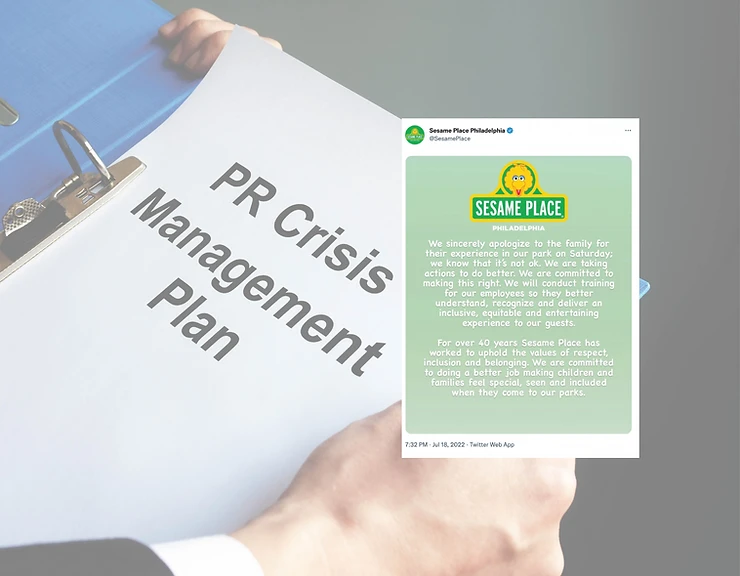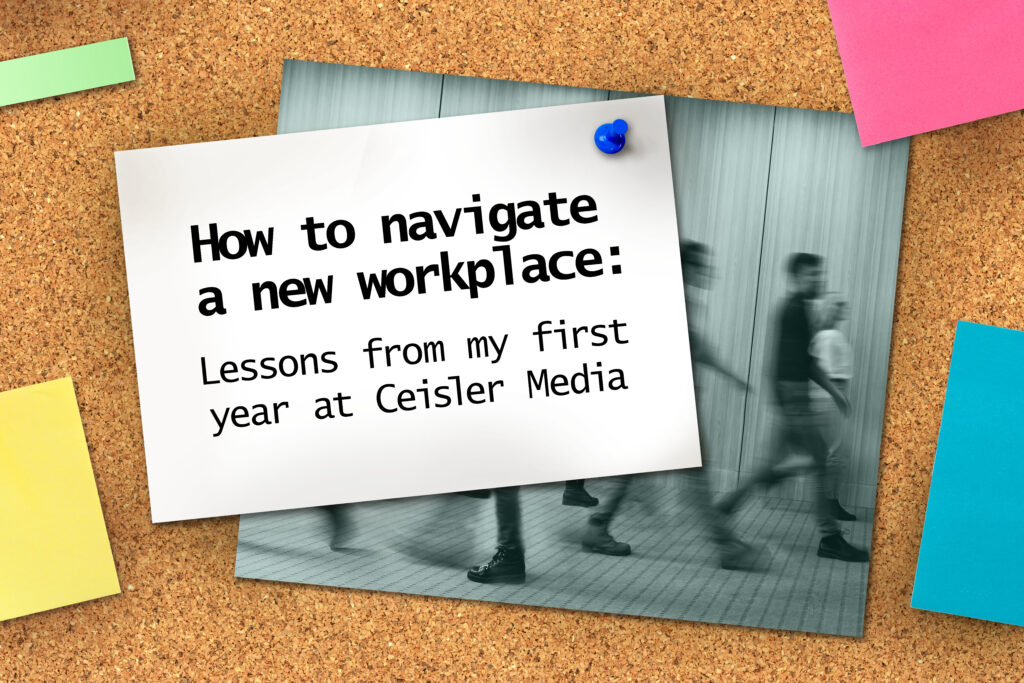Ceisler Media Senior Vice President Kirk Dorn on how Sesame Place bungled its response to a family’s negative experience.

The recent incident at Sesame Place, in which two six-year-old Black girls seeking high fives got snubbed by a performer in a Rosita costume, offers a perfect illustration of the mistake so many organizations make when dealing with a crisis. The company’s first impulse was to come up with an excuse, when their reaction should have been based on empathy — and credibility.
To recap, the character was caught on tape high-fiving a line of primarily white people. As the performer approached the two young girls, Rosita waved them off before moving onto the next white family with a hug for one of the kids. Sesame Place quickly issued a statement saying what we saw on video wasn’t actually what happened.
Soon afterward, another camera angle showed that what we saw was indeed what we saw, giving Sesame Place no choice but to issue an apology. Subsequently they issued two more apologies, saying the character’s actions were “unacceptable.”
I’ll tell you what was unacceptable — the way Sesame Place managed the crisis.
We see it again and again. Instead of putting out the fire or mitigating the damage by initially thinking through the lens of empathy, organizations want to fight and concede nothing. In this case, a safe, immediate, videotaped apology on social media by either the performer who played the character — or if they were unwilling, a company representative — would have begun the recuperation process.
There would be no need to expose the actor or spokesperson to news media questions. Just acknowledge the trauma you inflicted on these two kids and proclaim that you have learned from your mistake and will take action to ensure this does not happen again.
The company could then announce racial sensitivity training for all employees and even invite a reporter to watch a class to validate the training was really happening.
Since Sesame Place bungled the PR from the outset, they opened the door to more families claiming they had similar experiences. Not every allegation will be legitimate, but who are you going to believe, a discredited Sesame Place or little kids with tears in their eyes?
The parent company has since announced the sensitivity training, but the response continues to be clumsy. They have offered to meet with the family, “to…understand how the experience impacted their family and to understand what we can do better for them and all guests who visit our parks.” To understand how the experience impacted their family? That apparent attempt at empathy oozes with insincerity.

Yes, the company should meet with the family, but just to apologize, compensate them in some way, and explain what it plans to do to prevent this kind of behavior. I think we all know how it impacted the family. If someone punches you in the nose, they don’t meet with you later to ask how the blow impacted your face. You must stay credible.
Including empathy in your thought process does not mean you cannot defend your position. It’s just the first thing you should think of and, in fact, helps your defense. A recent example in Philadelphia where empathy was not communicated involved the owners of a low-income housing development who decided to sell the property for redevelopment.
When residents and activists protested, the company went on the offensive about their legal right to do with their property as they wished. They never acknowledged the pain of low-income residents being forced out of their homes or the legitimacy of part of the tenants’ argument.
When the media covered the situation, the owner responded with sound legal arguments but no moral or empathetic arguments. The owners will likely eventually win in court against a legal challenge to the redevelopment and move ahead with their plan, but the dispute did not need to reach the confrontational level that it has.
I am not suggesting these cases are easy. Situations evolve and you plan and react accordingly. But if you are not first willing to hear and understand what the aggrieved party is feeling, you are off to a bad start from a public relations perspective. Before you fire off a defensive or tone-deaf statement that may add to your problem, think carefully about how your audiences will receive it.
The Sesame Place story has attracted so much attention that now a Black family from Baltimore who claims they received a similar snubbing from multiple characters at the park has begun a class action lawsuit. It leaves you wondering whether Sesame Place would be facing this reputation damage if the company simply responded to the initial incident with credibility and empathy.
Perhaps someone should offer to meet with the company leaders to understand how the experience of facing a $25 million lawsuit makes them feel.

Kirk Dorn is a Senior Vice President in Ceisler Media’s Philadelphia Office



